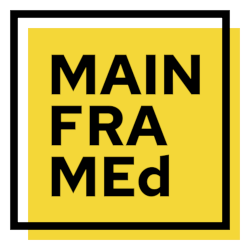MQ Security
Code: MQSECDescription
The purpose of this course is to provide attendees with a detailed understanding of the requirements for creating a secure MQ environment and the techniques for its implementation. It will provide a mix of lecture sessions and lab exercises. It is expected that students will use this techniques to secure their own MQ environments.
Audience
The audience will be comprised of architects and administrators from both customer and business partner organisations. Security personnel may also benefit from this course if they are to be involved with the administration of IBM MQ security but they should already be familiar with the concepts of messaging and in particular as it applies to MQ.
It is NOT suitable for a novice to attend this course. Students should be experienced MQ or security personnel who have been identified as requiring the ability to set up and customise the MQ security infrastructure.
Prerequisites
The major prerequisite skill is in-depth knowledge of IBM MQ administration. This can be obtained from the MQ Administration z/OS Part 1 course.
To do the practical exercises, knowledge of the Windows environment is necessary.
A knowledge of security concepts and RACF administration (optional for z/OS sites) would be helpful.
Objectives
After completing this course you should be able to:
- Define the following security concepts:
- Authentication.
- Non-repudiation.
- Encryption and decryption.
- Data integrity.
- Describe how Secure Sockets Layer (SSL) works.
- Implement SSL in MQ.
- Identify key issues associated with MQ client security.
- How to create specific and generic Profiles.
- Secure MQ objects using the OAM.
- Understand context security and the use of alternate user authority.
- User Exits.
- Error Diagnosis.
- Detail the additional considerations for using MQ with RACF on zOS.
Topics
Introduction.
Consolidation of MQ objects on which security is required.
Security Issues.
Overview of security concepts and facilities in MQ Firewalls:
• Logon Security.
Principals.
Security Identifiers.
Z Security:
• Switch Profiles.
• MQ Admin.
Local and Remote:
• Groups.
Definition.
MQM Group.
Administering Groups on different Platforms:
• Profiles.
Discreet and Generic:
• Creation.
• Using MQ Explorer and Object Authorities.
• OAM.
Authorization Service Interface.
Access Control List.
When Security Checks are made.
OAM Commands:
• DSPMQAUT.
• DMPMQAUT.
• SETMQAUT.
Z Series.
How it is achieved.
How it is granted.
Resource Profiles.
RACF Classes.
SYSCASE.
API relationship.
Context Authority.
Message and Identity.
Content Programming.
Passing Content Authority.
Channel authority.
Channel Initiator.
Channel Parameters.
MCAUSER.
Message Channel Agent Exits.
Sockets Layer (SSL) explained:
• Implementing SSL in MQ.
• SSL Handshake.
• Key Repository.
• Setting Up the Channels.
• Distinguished Names.
Clustering.
Good Security Practices.
Support Packs.
Price (ex. VAT)
Duration
Delivery methods
- Classroom
- On-site (at your location)
- Virtual (instructor online)
